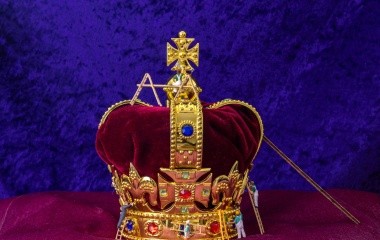
Despite the passage of 100 years, the sinking of the Titanic holds a special fascination. In fact, the only time I’ve gone out to the theatres to see a movie in the last fifteen years was to see the original release of James Cameron’s Titanic. The “centenary” of this terrible tragedy has generated numerous articles, books, and a very much-hyped 3D re-release of that movie.
The combination of luxury, the latest in technology, innovation, social stratification, hubris, and tragedy is an unbeatable combination. Throw in some tremendous heroism and self-sacrifice, along with some cowardly behaviour, and we have much that this tragedy can teach us.
Writing this on the day after Pesach, I can’t help thinking of Pharaoh’s initial response to Moshe: “Who is G-d that I should listen to His voice?” (Shemot 5:2). Man has an incredible capacity to be (overly) impressed with his own abilities. His arrogance often knows no bounds. No wonder our Rabbis teach that, “Very much, very much be of humble spirit, for the end [literally, hope] of Man is worms [the grave]” (Avot 5:4). I had always understood the Mishna as teaching that it makes no sense for mortal man to be arrogant—after all, we will all be gone (and mainly forgotten) in the blink of an historical eye.
However, the Mishna offers a much more basic teaching. Be humble, because if not, one may end up dead. Do people truly think that it is possible to build an unsinkable ship? I was fascinated to read that, on the day of the tragedy, the owners of the shipping line asserted that no one could possibly have drowned; after all, the ship was unsinkable. Those passengers on the Titanic would just have to wait to be rescued.
Of course, someone must have realized that the ship was not truly unsinkable; if not, why bother having any lifeboats aboard? Having the lifeboats—but not enough of them—makes the tragedy a preventable one, and hence, that much more tragic.
Unfortunately, the Titanic was not on an isolated journey. Everywhere one looks, one sees evidence of man’s unlimited faith in himself. It explains a good deal about the causes of the financial crises from which we have yet to fully recover. Tragically, it was a lesson the State of Israel forgot to apply in the aftermath of the Six Day War. And if I may say so, it is a lesson that much of contemporary Orthodoxy needs to learn. The notion that “the battle is over and Orthodoxy has won” is not only shortsighted, it is wrong. We may have “won” some battles; but many new fronts have opened, without us even realizing it.
Perhaps it takes a Moshe Rabbeinu to fully internalize these messages. In the only description of his character recorded in the Torah, we are told, “And the man Moshe was very humble, more so than all people on the face of the earth” (Bamidbar 12:3).
So while we need to pause and reflect on the tragedy of the RMS Titanic, 100 years later none are left alive who witnessed the events. What is left for us to recall is the fragility of life and the vulnerability of man. That was a message we were meant to think about yesterday, as we recited Yizkor.



